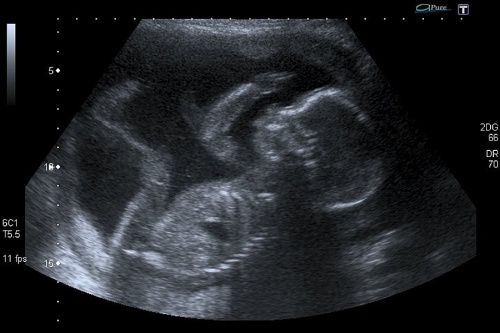Thousands of men, women, and children took to the streets of Birmingham on Saturday to take a stand for the unborn and to reach out to their community.
“At the very heart of this is the life of the unborn, and the protection of that life,” Archbishop Bernard Longley of Birmingham told CNA ahead of this year’s March for Life U.K.
“Alongside that is the Church’s concern for the mother, for those who are advising, those who are family, and the concern to support and to reflect God’s mercy in those circumstances.”
This is the third consecutive year the March for Life has been held in heart of Birmingham. The archbishop said the event aims to witness in a peaceful way to the Christian faith as well as to the “intrinsic, God-given value of life.”
“It’s overcoming the stereotypical response of people who don’t actually know the full teaching of the Catholic Church on the value of life,” Archbishop Longley said. He said he thought people “would be much more open to hearing about that message if they did know the fullness of the Church’s teaching.”
The day began with Mass held in St. Chad's Cathedral, before moving to the city center for the first part of the event. Participants heard the testimonies of speakers such as American Ryan Bomberger, who was conceived in rape and has since become founder of the Radiance Foundation. Canadian pro-life activist Stephanie Gray also spoke.
Stalls featured various pro-life groups in the U.K. There was also a “Mercy Bus” -- a double-decker bus where priests were available to hear confessions or to speak with anyone who wished to talk.
“It’s more like a pro-life family festival which is taking place in the city-center of Birmingham,” Isabel Vaughan-Spruce, co-director of March for Life U.K. told CNA.
She explained that in previous years the march had started from the cathedral. This year it began and ended in the city center itself. As a result, it was “more high profile” than in the past.
Although the march takes place in the busy center of the city, Vaughan-Spruce said that the tone of the march contributes to its positive reception.
“It’s not like a big protest. We are a joyful celebration of life, as well as being a serious reminder of the hurt and damage that abortion causes. So, it’s both-and. And there’s a time for joy, as well as being a time for quiet reflection,” she said.
This joy had an impact. During the 2015 March for Life, a young pregnant woman considering abortion changed her mind after seeing the juxtaposition between the small “aggressive” group of pro-abortion activists and the joyfulness of the pro-life marchers.
“She immediately knew from looking at the two groups which side she wanted to be on,” Vaughan-Spruce said, adding that she has since met the baby which the mother chose to keep on that day.
“That shows how the general public do actually recognize that joy when they see us,” she said.
Abortion was voted into law in the U.K. on Oct 27, 1967 with the Abortion Act, which took effect April 27 the following year. Since then, millions of legal abortions have taken place in the UK. According to official statistics, 184,571 abortions took place in England and Wales in 2014 alone.
“The fruits of this event are very real,” said Paschal Uche, a seminarian at St. Mary’s College, Oscott. He was one of the emcees for the March for Life.
“It’s really at the heart of what it means to be a Catholic,” Uche commented. “Jesus came that we might have life, and life to the full. At it’s very basic level that means the right to life for every person.”
Pro-life work such as the March for Life renews his sense of vocation, he told CNA.
“We stand for life,” he said.
“Personally knowing two girls who have gone for abortions, I know something of the pain of what the opposite (side) says, and we will never really know the pain of what the unborn baby feels.”
Toby Duckworth, a newly accepted seminarian for the Archdiocese of Birmingham, also served as an emcee.
“The March for Life is a way of witnessing to my belief in life, and in the sacredness of that,” Duckworth said. He voiced hope that people will come to share that belief and join in.
Archbishop Longley was unable to attend this year's March for Life due to another commitment. He said he hoped that the marchers’ witness would “touch people so that people think” and come to feel “the rightness of speaking in defense of life” within Birmingham and beyond.

